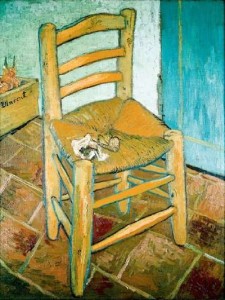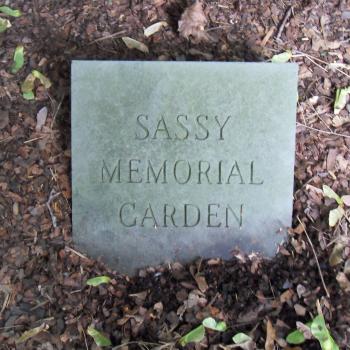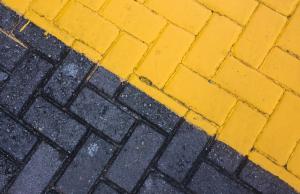 The doorbell rang around 11:00 a.m. My hubby George and I were both upstairs.
The doorbell rang around 11:00 a.m. My hubby George and I were both upstairs.
“Can you get it?” I called to him from my study.
“Nope, I’m changing my clothes. I don’t have pants on,” he answered.
So I ran downstairs and opened the door.
A small woman stood there smiling, wearing a suit and a straw hat that seemed to be from an era long past. She looked to be in her early sixties. “I’m Rose Goldman,” she said. “I grew up in this house.”
“How lovely,” I replied.
Not missing a beat, she continued, “I know it’s odd to have a stranger come to your door, and I’d understand if you weren’t comfortable letting me in, but…”
I stopped her. She looked harmless enough. “Sure, come in,” I said. “I’ve returned to my own childhood home, too. I’m sure you want to look around.”
With a grateful smile, she entered, continuing to offer explanations. “I lived here from the time I was three. I have so many memories from here. Now I live in Nashville, but I was in town for business so I thought I’d stop by. My grandparents owned the house, the Cohens.”
“That’s who we bought the house from, in 1977,” I told her. “A Mrs. Cohen. I think she was living in Florida and had been renting out the house.”
“Yes, that was my Aunt Sadie. Sadie Cohen. She still lives in Florida, at ninety-five!”
I showed Rose around the first floor. “We haven’t done any remodeling here, so it must be as you remember it.”
“Oh, but this is a new kitchen floor,” she said of my tiling, put in about twenty years ago. I had no memory of what flooring we’d replaced, but Rose did:
“Our kitchen floor was white and black tiles, I remember.”
“We’ve done some remodeling upstairs. Would you like to see it?”
“Oh, yes,” she beamed.
So I hollered up to George, “Are you dressed? I’m bringing someone up.”
He was, so up we went. On the way, Rose (talking excitedly non-stop) said, “My grandparents were very religious. They were Orthodox Jews. My grandmother was so saintly that I thought she was married to God. As a child, I felt there were angels in the house.”
We reached the top of the stairs, I introduced her to George, and we went into his room. Immediately she noticed the bookcase packed with Bibles and theology books. “Oh, you read theology,” Rose said happily.
“Yes,” George nodded; “I’m a deacon in the Roman Catholic Church.” Again, she didn’t miss a beat: “I’m so glad that religious people live in the house! That’s so important for a house: to be lived in by people who love God.”
I showed her the other upstairs rooms. “This was my bedroom,” Rose exclaimed. “But this door into the bathroom is new.”
“Yes, we had it put in a few years ago,” I confirmed, thinking what a memory for detail she has. Then noticing my underwear waiting on the edge of the sink to be washed, I steered her into my study as she continued reliving her memories aloud. “This was our spare room. We had a bed right over here…”
George must have noticed the same thing about Rose as I had: how she looked like someone who had stepped off the boat in the early twentieth century. He asked, “Were your grandparents immigrants?”
“Yes, from Russia and from Poland.” So that’s what she looks like, I realized, a Russian-Jewish immigrant from over a century ago.
George then had an inspired thought. “The mezuzah is still on the back doorframe. You’ll want to see it.”
“Oh, yes!”
George led her downstairs and to the back door, where the much-painted-over mezuzah was still in place.
All three of us knew how important this tiny parchment scroll is for a Jewish household, as a reminder of their faith. My own childhood home had a mezuzah on the doorframe, even though my parents were non-practicing Jews. Inside that scroll are the words from Deuteronomy 6:4–9 and 11:13–21, including:
Sh’ma, Yisra’el! Adonai Eloheinu, Adonai echad [Hear, Israel! Adonai our God, Adonai is one]; and you are to love Adonai your God with all your heart, all your being and all your resources. These words, which I am ordering you today, are to be on your heart; and you are to teach them carefully to your children. You are to talk about them when you sit at home, when you are traveling on the road, when you lie down and when you get up. Tie them on your hand as a sign, put them at the front of a headband around your forehead, and write them on the door-frames of your house and on your gates.
Rose seemed to be in seventh heaven at the sight of the mezuzah. “May I take a picture to show Aunt Sadie?” We nodded an of course, and from her purse she whipped out an iPad and snapped the shot.
The incongruity of Rose’s old-fashioned appearance and her iPad amused me.
We chatted a few more minutes as George and I walked her to the front door.
As she was leaving, she said, full of delight, “This house always felt to me full of blessings. And now it still does. I’m so happy.”
She blew us a kiss as she walked out.
Alone now, George and I looked at each other, sharing the silent sense that we’d been blessed by an angel passing by.
Peggy Rosenthal is director of Poetry Retreats and writes widely on poetry as a spiritual resource. Her books include Praying through Poetry: Hope for Violent Times (Franciscan Media), and The Poets’ Jesus (Oxford). See Amazon for full list. She also teaches an online course, “Poetry as a Spiritual Practice,” through Image’s Glen Online program.
Image used: Van Gogh’s Chair (1888), Vincent Van Gogh, oil on canvas











